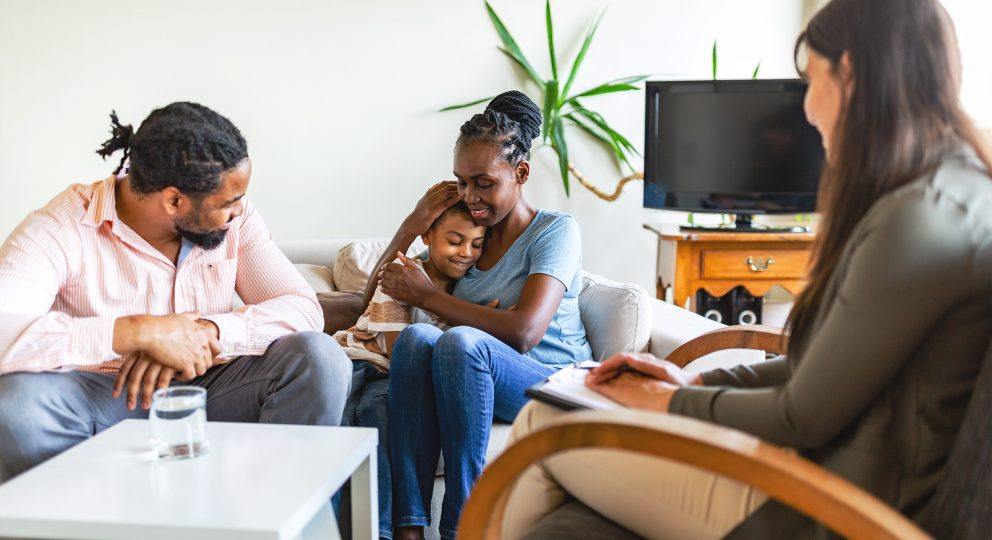Shame is a debilitating feeling that takes over the mind and body. It can make you feel small and incomplete while building walls around you to keep out compassion. Despite wanting to be seen and known, shame causes people to hide behind masks instead.
Healthy shame vs. toxic shame
Shame is felt universally across countries and different cultures. Homes and schools use social shaming to ensure expected behaviors. While healthy shame is necessary to keep society intact and ethical, this isn’t what causes distress and pain in so many people. Healthy shame guides toward self-correction, making amends, and growth.
Toxic shame, on the other hand, can be very harmful psychologically. It’s deeply absorbed in the nervous system (meaning, you feel it in your gut). Toxic shame is self-punishing and lingers on. Oftentimes, it uses negative self-talk such as, “I am such a bad person, I give up” (instead of “I did something bad. How can I fix it?”), “I am not good enough” (instead of “I am worthy just the way I am AND I can work on improving myself”), and “I am a failure” (instead of “It’s okay to fail. I am learning. I can try again.”). You learn these negative beliefs through shame-inducing caregivers, teachers, bullies, partners, friends, etc. This leads to feeling alone, disconnected, and more likely to engage in self-destructive behaviors. According to Brene Brown’s research, shame is related to violence, aggression, depression, addiction, eating disorders, and bullying.
How to step out of shame
Here’s the truth about shame: the less you talk about it with someone safe, the more control it has over your life and psychological well-being. The fear behind shame is usually the belief that sharing your story and being who you are will make people think less of you. It fights against the human need for acceptance.
Inner feeling of safety
One aspect of healing is creating an internal sense of safety so you can share your shame in the first place. If you don’t feel safe, you can’t share. You need to tell your story to safe people who will listen and not judge. Such safety is necessary to feel vulnerable.
Talking to a therapist with whom you connect can start this process of feeling internal safety. If done successfully, all of this will lead to externalizing shame. Instead of “being shame,” shame becomes something external that you picked up and now are choosing to let go of. Externalizing shame is so empowering. Through it, you can develop more compassion for yourself and others in this process.
Shame disappears when you tell vulnerable stories in safe environments.
According to Dr. Stephen Porges’s Polyvagal Theory, safety is critical for humans to function well, be creative, and connect with others. When people are gentle, this creates a space for co-regulation. For the connection between two people to be supportive and promote co-regulation of physiological state, the expressed cues need to communicate safety and trust. These cues of safety help calm the autonomic nervous system. The calming of physiological state helps create safe and trusting relationships.
When your nervous system detects danger, you move from connection into states of protection. Shame tries to protect you from others because it falsely believes that they won’t like you otherwise. Your job is to show your nervous system that it’s safe and okay to share your story and that you are still likable and worthy. However, when you try to step out of shame, you may experience internal resistance in a form of negative thoughts and bodily reactions that tell you it isn’t safe to do so, even when you are around safe and supportive people. This is a trauma response and you need skills to soothe and manage it.
Distress Tolerance Skills
Another part of healing is developing distress tolerance skills—managing the uncomfortable emotions that arise when you choose to express your shame. To free yourself from shame, you need to share it and process it. Sometimes this is hard to do, even with safe, supportive people. The mind and body try to keep you safe by reminding you of all the things that could go wrong.
When you are dysregulated, it is difficult to be rational. Many of the coping strategies you use when experiencing overwhelming emotions only make your problems worse. Some of these unhelpful coping methods can include ruminating about past problems and mistakes, worrying about the future, isolating yourself, numbing with substances, or taking out your feelings on other people by getting angry and blaming them. As you can see, none of these are helpful.
Final Thought
What healthy coping skills do you have that soothe you when you are upset? Therapy can help develop these skills so that your journey of stepping out of shame is more tolerable. There are many distress tolerance skills you can learn with a licensed mental health professional, as well as processing the origins of your shame.
The one truth to remember is that everyone can feel shame. You are not alone. Healing is possible.










